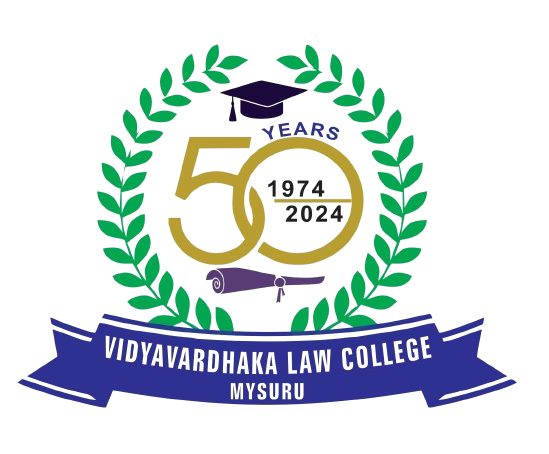Report on Limitation Act
Posted on By College
On 25th October 2017 a special lecture on Limitation Act was organized for final year students.Sri H.V.Srinatha, Advocate, Mysuru spoke on importance of the limitation Act at present era and its implication. The occasion was presided over by Prof.K.B.Vasudeva,principal,VVLC,Mysuru.
While speaking pointed out that the law of Limitation prescribes the time limit for different suits within, which an aggrieved person can approach, the court for redress for justice. The suit, if filed after the exploration of time limit, is struck by the law of limitation. It’s basically meant to protect the long and established user and to indirectly punish persons who go into a long slumber over their rights.
He pointed out that the very first Limitation Act was enacted for all courts in India in 1859and finally took the form of Limitation Act in 1963.A citizen is not expected to master the various provisions which provide for limitation in different matters but certain basic knowledge in this regard is necessary. For instance Section 5 of the Act provides that the Extension of prescribed period in certain cases, in which on the application of an applicant the court may also extend the period in some situation on sufficient grounds.Section 12 of the Act, lays down certain guidelines regarding computation of limitation period. It says that in computing the period of limitation for any suit, appeal or application, the day from which such period is to be reckoned, shall be excluded.
Further, the day on which the judgment complained of was pronounced and the time requisite for obtaining a copy of the decree, sentence or order appeal from shall be excluded. However, any time taken by the court to prepare the decree or order before an application for a copy thereof is made shall not be excluded.
Further he highlighted under what circumstances computing the period of limitation is excluded. Incase, the prescribed period for any suit, appeal or application expires on a day when the court is closed, the suit, appeal or application may be instituted on the day when the court reopens, as provided under section 4 of the Act. This is based on the principle “actus curial neminemgravabit”, which means that an act of court shall not prejudice any one. The court can condone the delay, if satisfied that it causes were beyond the control of the plaintiff too.
The special lecture concluded with the vote of thanks proposed by MrsDeepu P, Asst Professor, VVLC.
Post navigation
Previous: Health Awareness Programme Next: Seminar on The role of Law in developing Scientific Temper


